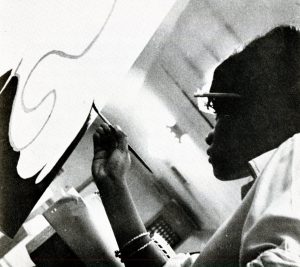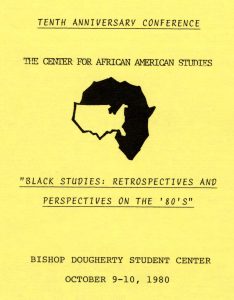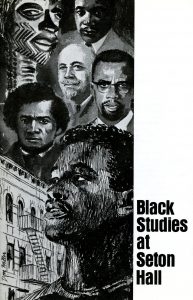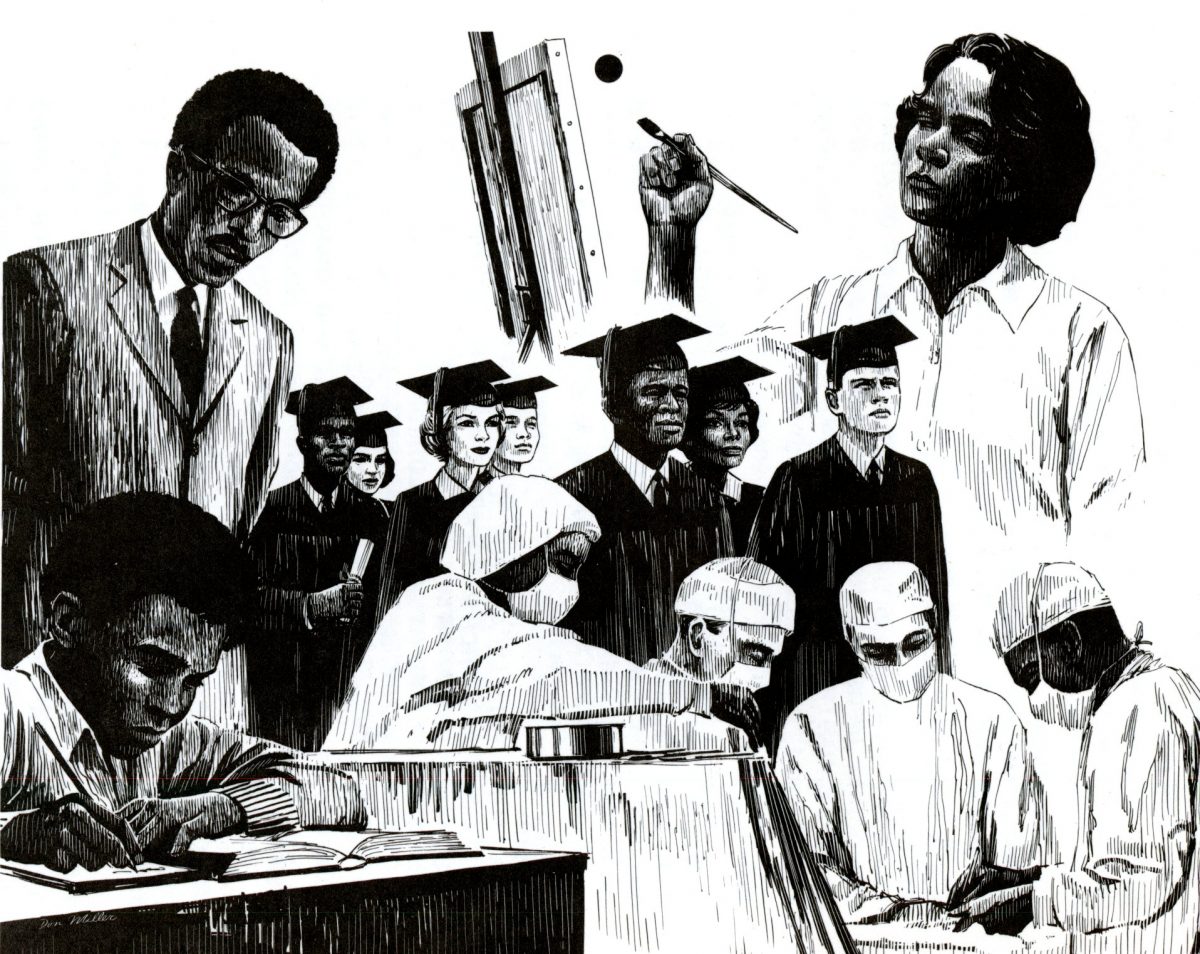The legacy and importance of formal African American Studies curricular development on campus goes back five decades. Originally known as the Center for Black Studies, its founding date of August 1, 1970 heralded the start of a unique and valuable learning opportunity for the Seton Hall University academic community which continues to this day.

From its adoption, the early vision of Dr. George Jackson who was appointed the first Director of Black Studies combined with strong administrative support from Msgr. Thomas Fahy, University President and Bishop John Dougherty, President Emeritus, the program had a successful launch and solid foundation from which to build further recognition. The Center for Black Studies offered students the choice of a certificate, or degree-bearing option of study which included a Bachelor of Arts in Black Culture or Black Community Studies upon successful completion of coursework. This program has continued to evolve over time and from the 1980s forward changed its operating title and is now focused on offering diplomas centered on both African American and Africana Studies in particular.

The ongoing mission of the Center for African American Studies has been well-documented throughout its history via the existence of various writings produced by the institute from its planning days during the late 1960s forward. The following passage captures the philosophical approach created by the founders and developed upon over time: “The Black Studies Center seeks to encourage Black scholars to develop vital skills in the interest of the Black community . . . It also recognizes that part of its mission must be to operate in a manner which will promote humane application of contemporary knowledge and skills to the Black community and to society in general. If scholarship is to be one of the tools by which total freedom is to be obtained then the Black scholar and those who guide his development must accept no compromise for excellence.” This all tied into the prime objective of training individuals who would continue to promote research and create publications related to African American themes for present and future generations to explore in more depth.
 The archival records that correspond to the Center for African American Studies contain materials documenting the operation of the institute from 1970 until the late 1980s. Included within our holdings connected to this area are examples of budget data, office memoranda, course offering overviews, meeting minutes, newsletters, notices, and various operational files that show the inner-workings of the Center. More details about this collection can be found by consulting the following finding aid: https://archivesspace-library.shu.edu/repositories/2/resources/316
The archival records that correspond to the Center for African American Studies contain materials documenting the operation of the institute from 1970 until the late 1980s. Included within our holdings connected to this area are examples of budget data, office memoranda, course offering overviews, meeting minutes, newsletters, notices, and various operational files that show the inner-workings of the Center. More details about this collection can be found by consulting the following finding aid: https://archivesspace-library.shu.edu/repositories/2/resources/316
In addition to the Center for African American Studies proper, the Monsignor William Noé Field Archives & Special Collections Center holds a number of other resources related to the African American experience. More details on specific collections and relevant holdings can be found via the following site: https://library.shu.edu/collections-guide/african-american-studies

For more information on any aspect of African-American or University History you can contact us by phone: (973) 275-2378, or via e-mail at: <Alan.Delozier@shu.edu>
